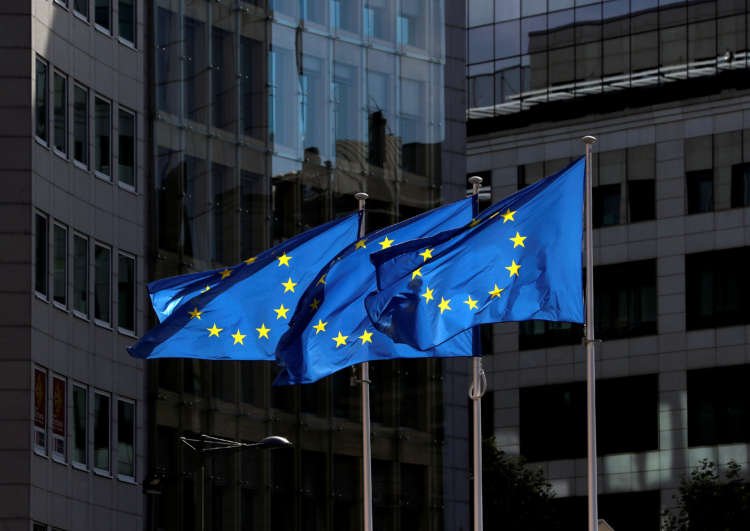Analysis-In a harsher trade world, EU arms itself for future conflicts
Published by linker 5
Posted on February 9, 2021
4 min readLast updated: January 21, 2026

Published by linker 5
Posted on February 9, 2021
4 min readLast updated: January 21, 2026

By Philip Blenkinsop
BRUSSELS (Reuters) – Hardened by the pain of Brexit, clashes with the Trump presidency and a new realism over China, a bruised European Union is due next week to set out a future trade policy designed to help it deal with partners it does not trust.
Enforcement of global rules and ensuring equal market access will be cornerstones of a new strategy to be unveiled by the European Commission that is strikingly harder in tone than the “Trade for All” mantra of the last revamp in 2015.
As coordinator for the 27 EU countries, the Commission wants trade to support a green and digital recovery, while also stressing greater resilience to a future pandemic and fair play – the so-called “level playing field” demand that became such a bone of contention in its post-Brexit talks with Britain.
“We are reinforcing our toolkit to be able to react in case third countries are not playing by the rules so we are better equipped to protect ourselves,” Trade Commissioner Valdis Dombrovskis told a seminar last week.
Dombrovskis did not name the third countries and nor will the review, but few doubt China and the United States are the focus. The enforcement push was already gathering pace in 2019 when the EU first declared China a “systemic rival” and when the Trump administration paralysed the World Trade Organization’s Appellate Body, removing the ultimate arbiter of global trade.
“Trump’s unilateral action is what caused the EU to respond by beefing up its capacity to act, not outside the WTO, but in a more rapid and vigorous manner,” said Andre Sapir, senior fellow at Brussels-based think tank Bruegel.
The EU’s enforcement regulation is a result. Set to enter force in weeks, it will allow the bloc to retaliate if a third country blocks dispute settlement, such as by appealing a WTO panel ruling to its non-existent Appellate Body.
The EU has agreed an interim appeals system with trading partners, including China, but not the United States. Conceived in the face of Trump’s trade tactics, the system could spell conflict with the new U.S. administration of Joe Biden.
The international procurement instrument, likely to be agreed this year, is a further piece in the EU’s armoury. It could penalise trading partners that do not open government tenders as much as the European Union does.
It is designed to push China towards reciprocity but could also bring a challenge to Biden’s new “Buy American” order.
The legislation was first put forward in 2012 but was blocked by EU countries. However, Germany and others have now changed their views.
TOUGHER ON PARTNERS TOO
With a new chief enforcement officer, the European Union will also raise disputes with its free trade partners to ensure deals are met in full, not only over market access, but also covering “sustainable” issues, such as labour rights and environmental policy.
The bloc kicked off 2021 with an arbitration panel ruling in its favour on a dispute with South Korea, which the European Union said had not fulfilled commitments on labour rights in a trade agreement that entered force a decade ago.
It appears the shape of things to come, with another panel ruling related to wood exports from Ukraine done and another due on poultry exports to southern Africa.
The EU’s agreements with Britain on trade and China on investment, both struck at the end of December, are models of how to reach accords with partners one does not really trust, both filled with sections on how to resolve disputes.
The European Union wants to promote its values, insisting for example all free trade partners sign up to the Paris climate change accord.
Whether the enforcement has teeth remains to be seen. Critics say that, while market access disputes can lead to sanctions, enforcement of environmental or labour standards, such as in both the Korea and China deals, is in the form of a panel finding that is more of a shaming exercise.
The EU’s new arsenal may also never be used, particularly against potential new U.S. allies, and serve more to increase leverage in trade-related discussions.
“The EU has preferred the diplomatic route,” said Guillaume Van der Loo, research fellow at think tanks EPC and Egmont Institute. “Will it now use its bazookas? I think only as a last resort. It will pursue other avenues first.”
(Reporting by Philip Blenkinsop; Editing by Giles Elgood)
Explore more articles in the Top Stories category











